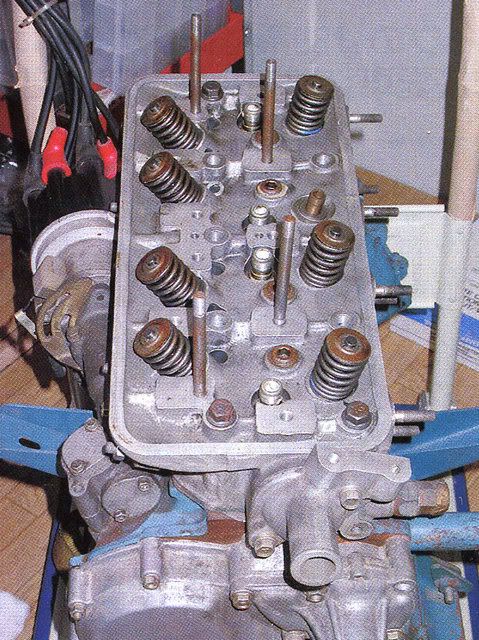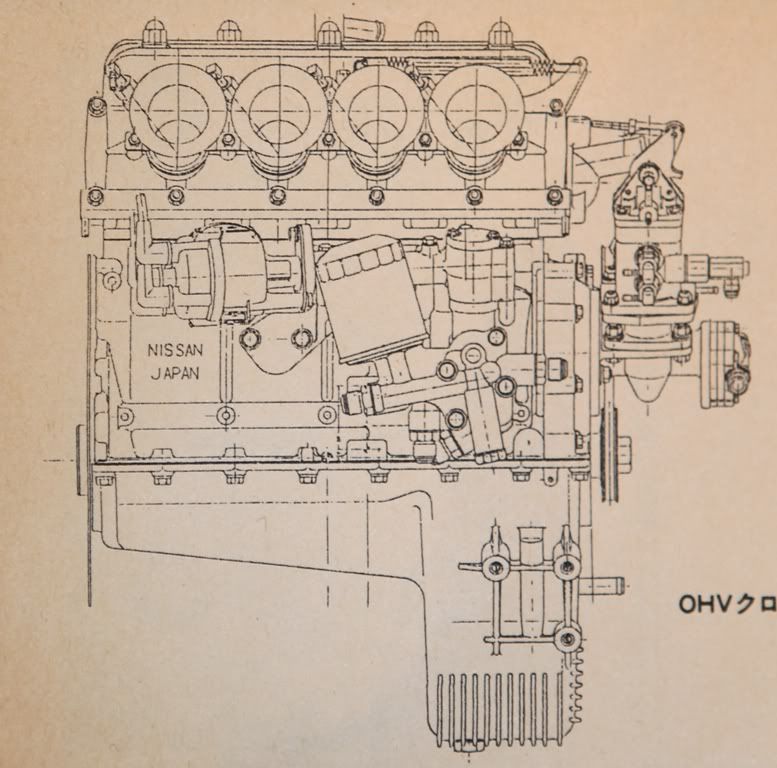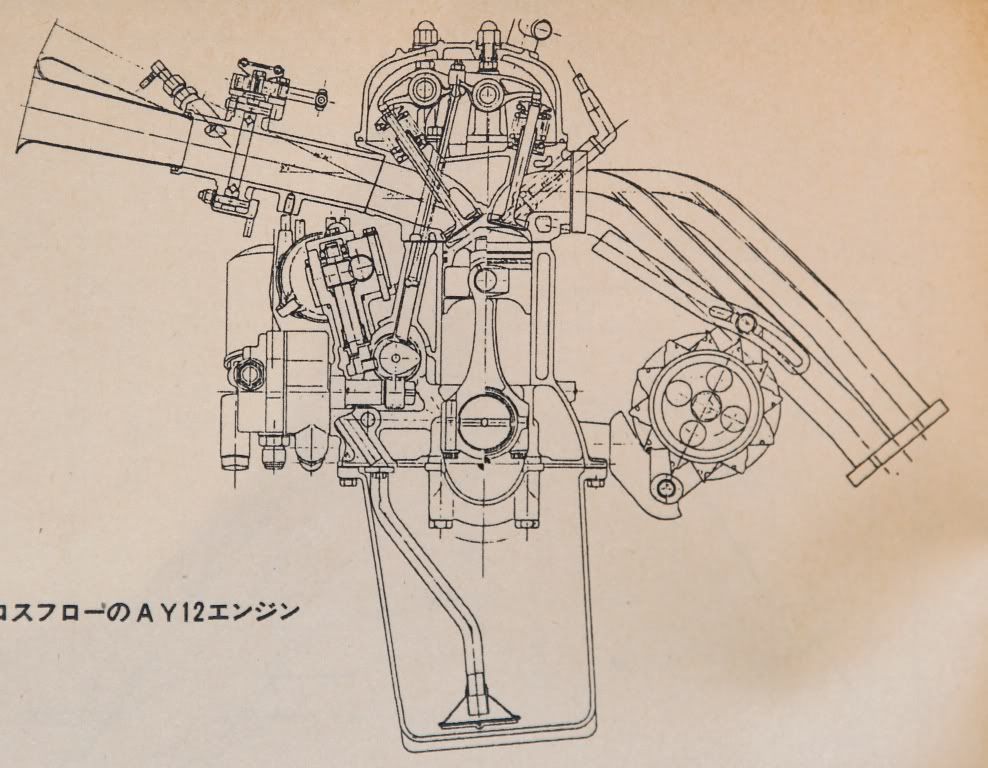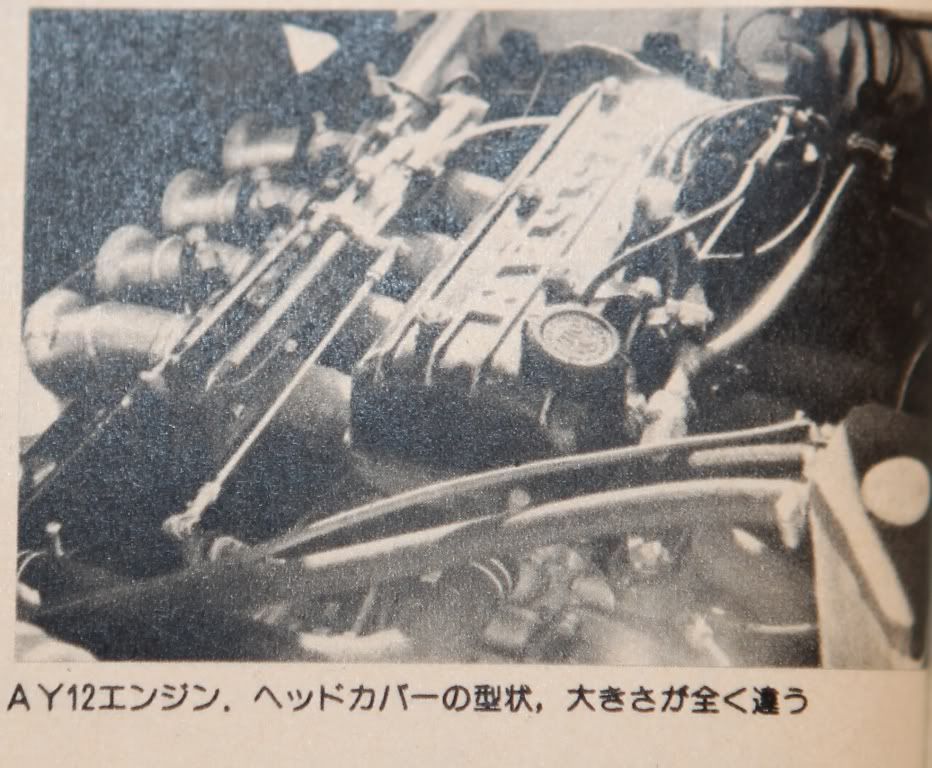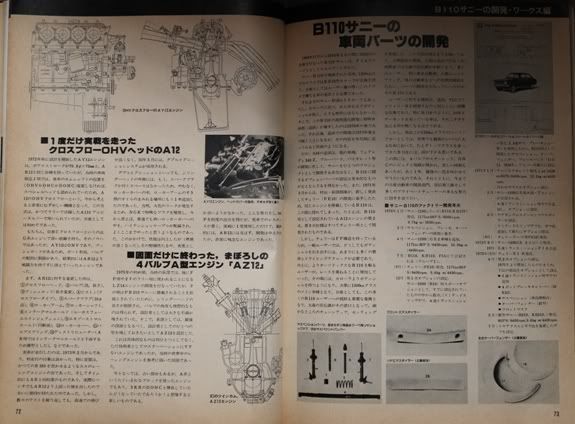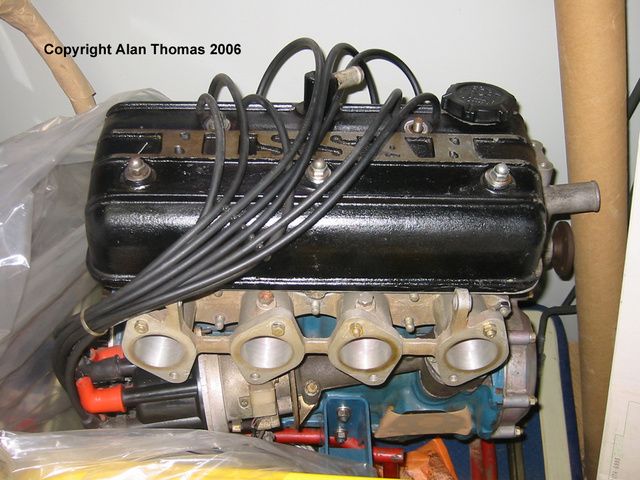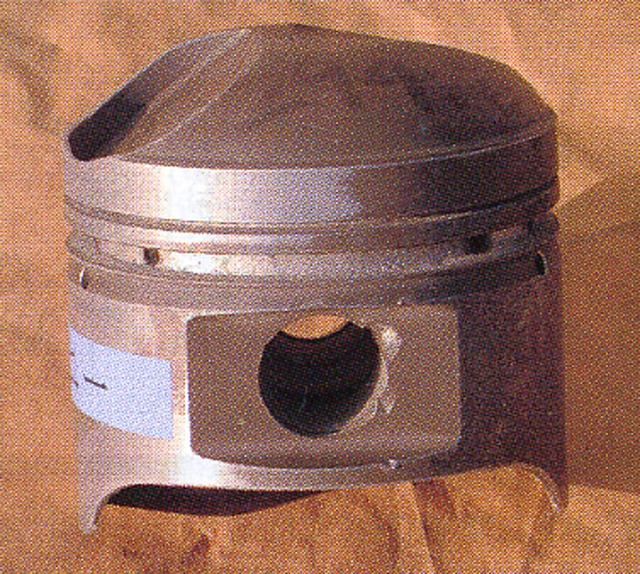Perhaps the most interesting variety of A series engines was the AY12 engine. This was a special race-only Nissan factory (works) racing version with a crossflow cylinder head. The AY12 is so rare it has been dubbed the Nissan Mystery Motor. It was used in works Datsun Cherry racing cars.
Contents |
Video footage of the engine in question
V I D E O TS Sunny A12 (click to view)Overview
Cross-flow Double-Ignition AY12 OHV 160ps @ 8,800 rpm
AY12 was used in under-1300cc class racing with 76 to 76.8mm pistons. Intake valve was 40-41mm and exhaust valves that have been used are 33mm and 34mm. The piston was also special design. Because of the hemi combustion chamber, the pushrod-activated valve rocker system was different from the regular A12.
A12 cross flow engine in a Cherry X1-R raced in the Fuji speedway Victory 200 race in 1973.
It is rare as. Probably the rarest Datsun engine of all. Almost no one has ever seen one, but they exist in photos and old magazines.
Nissan Part Number 11041-M0820. See the FIA homologation papers for the PE10/A12GX E10 Datsun Cherry.
LTR was planning to create a new head casting: Remake of the Crossflow.
It used a large right-angle distributor lying horizontally along the block. It served eight spark plugs, so these engines used two plugs per cylinder. The original design & prototype head used only one plug per cylinder but the racing heads used two.
Benefits
Using a stock A12 engine block, here are some benefits of the racing-only A12Y cylinder head:
- It is crossflow, the inlet and exhaust are on opposite sides of the head.
- Using a hemi cylinder head design, the valves are in better position than in the normal model. Racing trim was reportedly 220 gross horespower
- The is no heat problem with twin carbs, because they are on diffent side than the exhaust manifold.
- The chamber is hemi, it can take more compression without unintended pre-detonation (knocking or pinking/pinging)
- The exhaust side is the same as normal head. The ports are not in same place but one can use standard A12GX exhaust manifold
Documentation
Full-page article on the AY12 in Auto Technic Magazine 1982 volume 14 no.164.
Crossflow OHV AY12 pushrod head
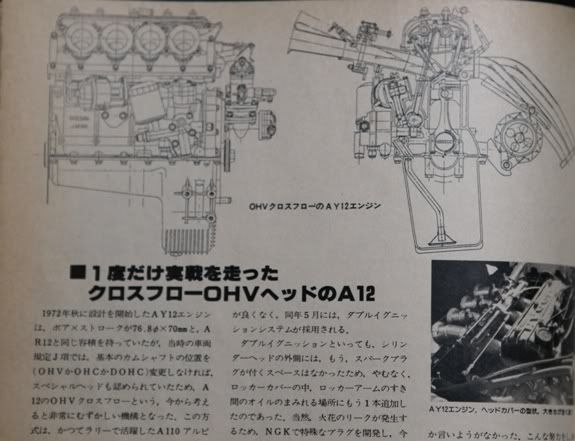 full
full
Bottom: AZ12 DOHC Engine similar to the Nissan LZ Engine
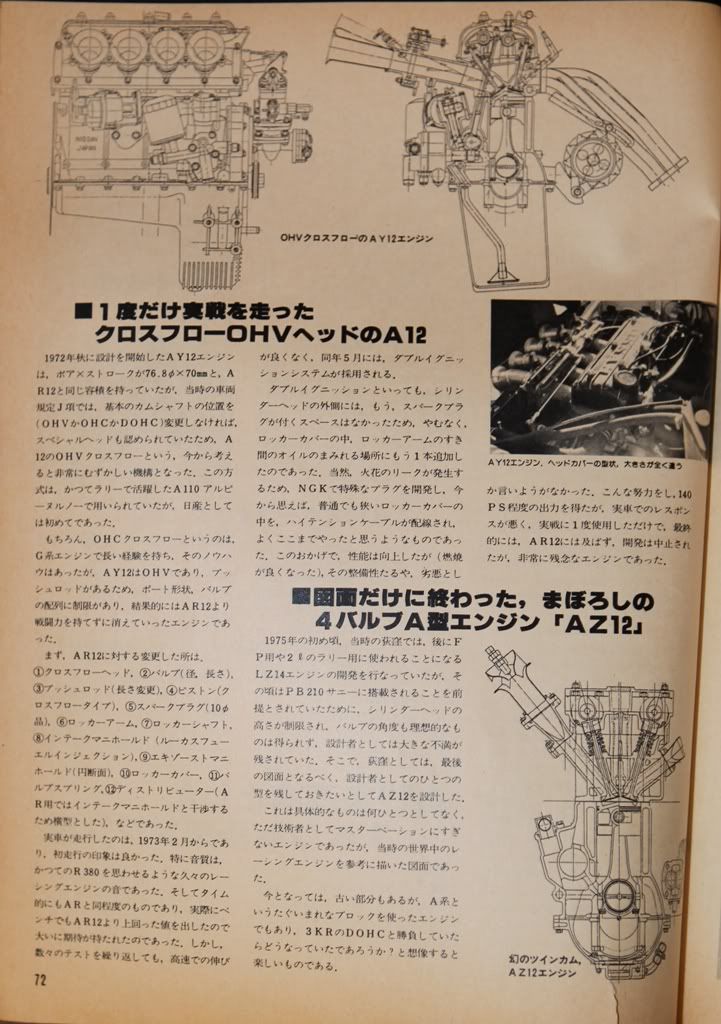 full
full
This is just a diagram. It seems no AZ12 was actually produced.
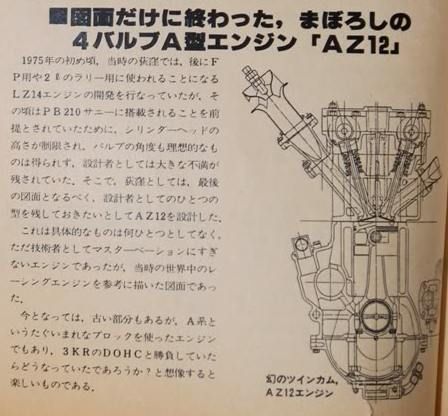 full
full
4-valve AZ12 DOHC head
 album
album
Oil Pump with upright filter boss for Cherry FF (FWD) race car
 album
album
Swap Notes
- In a right drive, rear drive car, the rear carb is likely to cause interference problems with the brake cylinder. Solution: use a remote brake master cylinder.
- Left side drivers, however will immediately see the advantages
- The exhaust can quite obviously be made in a more conventional style to allow a lot more room in there
- The induction on this one precludes the use of a conventional distributor
- One could use a right angle drive to lay the distributor down alongside the block, but it makes it hard to service.
- Or use an EDIS crank trigger ignition
- In RHD, the carbs in the picture are causing a problem with the routing of the clutch cable. Again, LHD cars will have no problem
Right-angle distributor
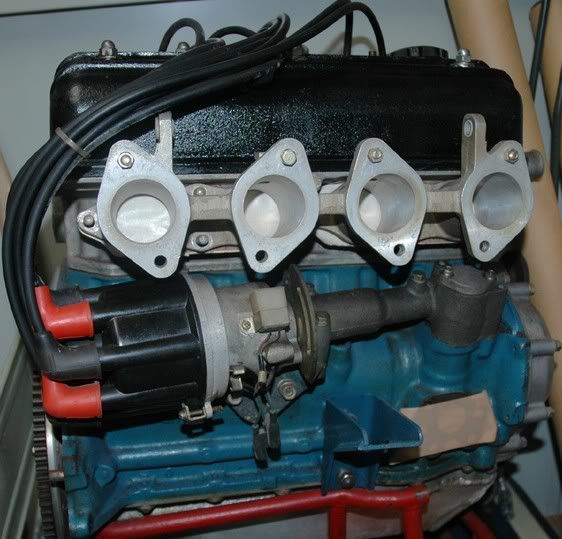 full
full
The head was originally designed for a transversely mounted engine in the Cherry range of cars & some of the clearance problems simply did not arise because of this transverse mounting.
The cure for some of these problems might just be a custom EFI induction with a crank angle sensor made from a modified distributor & let the computor sort out the spark problem. Even a simple Pertronix conversion would very likely serve this purpose quite well for many aftermarket computers. Just make a flat[ish] cover for the distributor to replace the distributor cap, & run two coils in a wasted spark configuration.
Discussion
Forum: Remake of the Crosslow, pushrod a-series "ay12" 11041-M0820 head
OLD TIMER Magazine, February 2005
The FIRST version of the AY Crossflow was a 'Single Ignition' version, and this was soon modified to the SECOND 'Double Ignition' version - which was more efficient. As the FIA homologation papers show the FIRST version, it is possible that the JAF homologation papers ( covering domestic racing in Japan ) may also cover the SECOND version, or it was being used prior to proper homologation and the then-current homologation was going to be retrospectively updated ( which is not an unprecedented situation ).


![[Datsun 1200 encyclopedia]](/wiki/upload/wiki.png)



